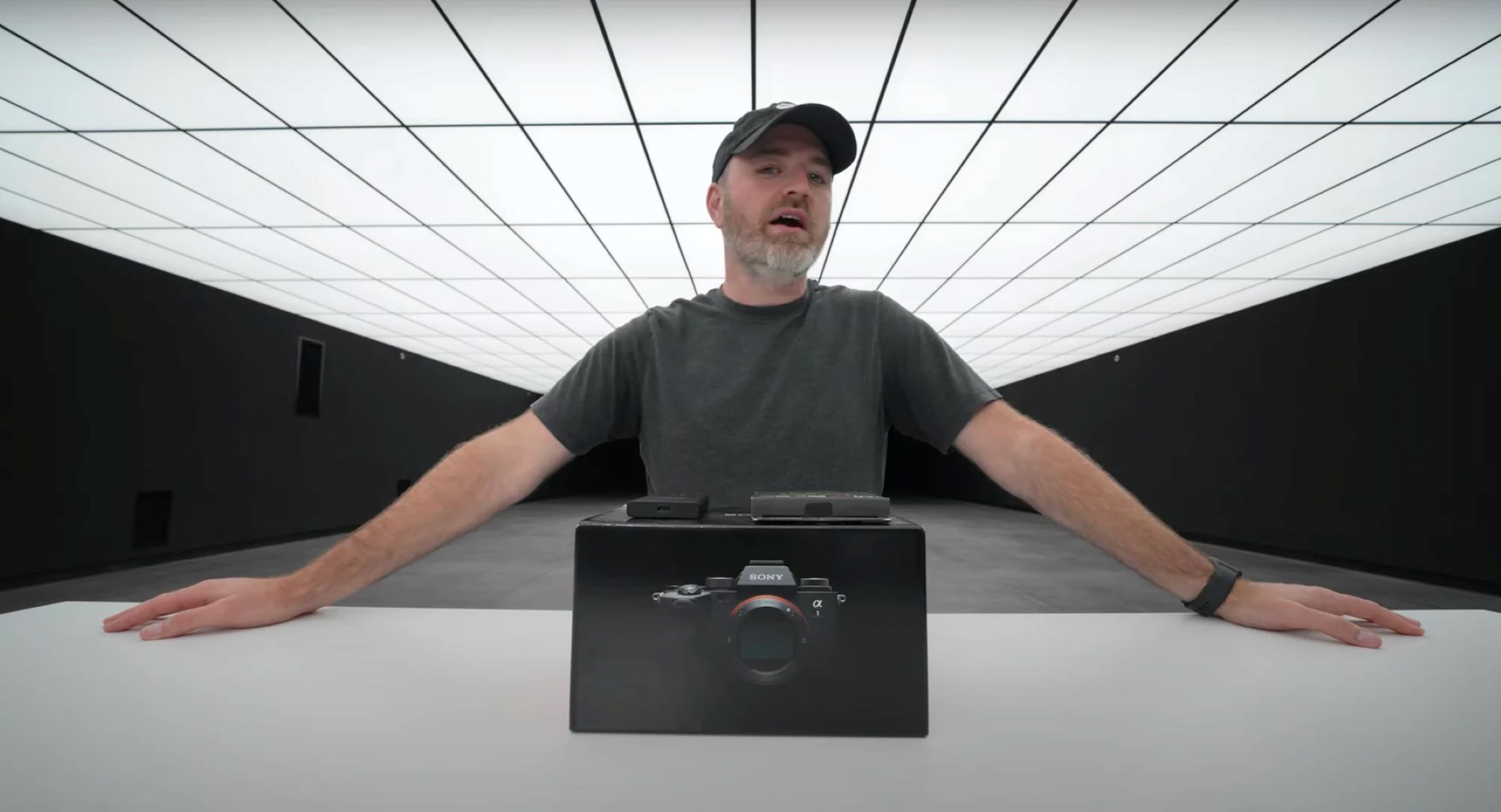Home>Events & Info>Music Therapy>What Does Music Therapy Do For People


Music Therapy
What Does Music Therapy Do For People
Published: February 1, 2024
Discover the benefits of music therapy for individuals. Enhance emotional well-being and improve overall health with the power of music. Experience the transformative effects of music therapy today!
(Many of the links in this article redirect to a specific reviewed product. Your purchase of these products through affiliate links helps to generate commission for AudioLover.com, at no extra cost. Learn more)
Table of Contents
- Introduction
- The Definition of Music Therapy
- The History of Music Therapy
- How Music Therapy Works
- Benefits of Music Therapy
- Music Therapy Techniques
- Applications of Music Therapy
- Music Therapy and Mental Health
- Music Therapy and Physical Health
- Music Therapy in Rehabilitation
- Music Therapy in Special Education
- Music Therapy and Stress Reduction
- Music Therapy and Pain Management
- Conclusion
Introduction
Music has always been an integral part of human culture. It has the power to evoke emotions, transport us to different times and places, and unite us in shared experiences. But did you know that music can also be a powerful therapeutic tool? Music therapy harnesses the healing qualities of music to promote emotional, mental, and physical well-being.
Music therapy is a professional and evidence-based practice that uses music to address individuals’ unique needs and goals. It is facilitated by trained music therapists who are skilled in combining the therapeutic elements of music with various techniques to achieve specific outcomes.
Throughout history, music has been recognized for its profound impact on human health and well-being. The healing qualities of music were first documented in ancient civilizations such as Egypt, Greece, and India. In modern times, music therapy emerged as a formal discipline in the early 20th century, gaining recognition and acceptance within the medical field.
This article explores the fascinating world of music therapy, its history, and its benefits across different realms of health and wellness. We will delve into the techniques used in music therapy, its application in different settings, and its potential in promoting mental and physical health, rehabilitation, special education, stress reduction, and pain management.
So, whether you are a music lover, a healthcare professional, or someone looking for alternative therapeutic options, join us on this journey to discover the wonders of music therapy.
The Definition of Music Therapy
Music therapy is an evidence-based practice that uses music to address the physical, emotional, cognitive, and social needs of individuals. It is a therapeutic intervention that is conducted by trained and certified music therapists who are skilled in integrating musical elements with therapeutic techniques to achieve specific goals.
The fundamental principle of music therapy is the understanding that music has the power to affect us on multiple levels. It can stimulate our emotions, engage our attention, and tap into our memories. Music therapy recognizes and utilizes these qualities to improve overall well-being.
Music therapists work with individuals of all ages, from infants to older adults, and cater their approach to meet the unique needs and preferences of each client. The goals of music therapy can vary widely depending on the individual’s needs and the setting in which the therapy is being conducted.
The therapeutic process in music therapy can involve various activities, such as singing, playing musical instruments, songwriting, listening to music, and improvisation. These activities are carefully chosen and tailored to meet the specific therapeutic goals of each individual. Music therapists may also incorporate other therapeutic techniques, such as guided imagery, relaxation exercises, and verbal processing, to enhance the therapeutic experience.
It is important to note that music therapy is not solely about the performance or appreciation of music. While musical skills and knowledge may be utilized, the focus is on the therapeutic process, rather than the musical outcome. The goal is to use music as a tool to facilitate personal growth, self-expression, and positive changes in areas such as communication, emotional expression, motor skills, and cognitive abilities.
Music therapy can take place in various settings, including hospitals, rehabilitation centers, schools, mental health facilities, community centers, and private practice. It can be conducted in both individual and group settings, depending on the specific needs and goals of the individuals involved.
Overall, music therapy offers a unique and powerful approach to healing and self-discovery. Its holistic nature, combined with the universal appeal of music, makes it a valuable therapeutic option for individuals of all ages and backgrounds.
The History of Music Therapy
The use of music for therapeutic purposes dates back thousands of years. The healing power of music was recognized and utilized in ancient civilizations like Egypt, Greece, and India. Ancient texts and artifacts reveal that music was used in rituals, ceremonies, and healing practices.
However, the field of music therapy as we know it today emerged in the early 20th century. In the aftermath of World War I and World War II, musicians volunteered their time to play music for wounded soldiers in hospitals. These musicians noticed the positive effects that music had on the soldiers’ morale, pain relief, and overall well-being.
In the 1940s, the discipline of music therapy began to formalize. E. Thayer Gaston, an American psychiatrist, and musicologist, established a program at the University of Kansas that offered the first academic training in music therapy. This program laid the foundation for further development and recognition of music therapy as a profession.
In the 1950s and 1960s, the American Music Therapy Association (AMTA) was founded, providing a professional organization for music therapists and promoting research, education, and advocacy in the field.
Since then, music therapy has continued to evolve and gain recognition globally. The therapeutic benefits of music have been widely studied and documented, leading to the integration of music therapy in various healthcare settings, educational institutions, and community programs.
Today, music therapy is a well-established and respected profession. Music therapists undergo rigorous training and education to develop both musical and therapeutic skills. They often have formal degrees in music therapy and complete clinical internships to gain practical experience under the guidance of experienced professionals.
Music therapy has also expanded into different specialized areas, including music therapy for children, older adults, individuals with disabilities, and those with mental health conditions. It is now recognized as a valuable complementary therapy in conjunction with medical treatments and interventions.
The ongoing research and advancements in the field continue to demonstrate the effectiveness of music therapy in promoting physical and emotional well-being. As a result, music therapy is increasingly integrated into a wide range of healthcare and educational settings, providing individuals with a therapeutic outlet for self-expression, emotional processing, and personal growth.
The history of music therapy serves as a testament to the enduring power of music as a healing force and the dedication of music therapists in harnessing its potential to improve the lives of individuals around the world.
How Music Therapy Works
Music therapy works by utilizing the unique properties of music to address the physical, emotional, cognitive, and social needs of individuals. The therapeutic process involves the intentional and systematic use of music by trained music therapists to achieve specific therapeutic goals.
One of the key mechanisms through which music therapy works is the effect of music on the brain. Listening to or engaging in musical activities can stimulate various areas of the brain, including those involved in emotions, memory, and motor function. This activation of the brain can have a profound impact on an individual’s mood, cognition, and overall well-being.
Music therapy also works by providing a structured and supportive environment for individuals to express themselves through music. For individuals who may struggle with verbal communication, music offers a non-verbal medium for self-expression and emotional release. Through music, individuals can convey their emotions, thoughts, and experiences in a safe and non-judgmental space.
The rhythmic and melodic elements of music can also have a calming and organizing effect on the body and mind. Music with a slow tempo and repetitive rhythm can help reduce anxiety, promote relaxation, and regulate breathing and heart rate. This can be particularly beneficial for individuals dealing with stress, trauma, or chronic pain.
Furthermore, music therapy works by fostering a sense of connection and social interaction. Group music therapy sessions provide opportunities for individuals to engage with others, collaborate, and share in the joy of making music together. This can help improve social skills, build community, and enhance feelings of belonging and connection.
Music therapy techniques are tailored to meet the specific needs and goals of each individual. These techniques may include listening to music, singing, playing musical instruments, improvising, composing songs, and using music-based interventions such as rhythmic auditory stimulation or lyric analysis. The music therapist guides and supports the individual throughout the therapeutic process, adapting the interventions as needed to promote growth and positive changes.
It is important to note that music therapy is a collaborative process. The music therapist works closely with the individual, taking into consideration their preferences, cultural background, and therapeutic goals. The individual actively participates in the music-making process, whether it is through active engagement or receptive listening, ensuring that their needs and preferences are honored.
By harnessing the power of music, music therapy provides a unique and effective approach to promoting health and well-being. Whether it is through the release of emotions, the stimulation of cognitive abilities, or the facilitation of social connections, music therapy taps into the potential of music to create positive and transformative experiences for individuals of all ages and backgrounds.
Benefits of Music Therapy
Music therapy offers a wide range of benefits for individuals of all ages and backgrounds. Through the intentional use of music as a therapeutic tool, music therapy can promote emotional, physical, cognitive, and social well-being. Here are some key benefits of music therapy:
- Emotional Expression and Regulation: Music therapy provides a creative and non-verbal outlet for individuals to express and process their emotions. It can help individuals explore and release feelings of joy, sadness, anger, or anxiety in a safe and supportive environment. Music also has the power to elevate mood, boost motivation, and provide comfort during challenging times.
- Enhanced Cognitive Abilities: Engaging in musical activities can stimulate various cognitive processes, including attention, memory, and problem-solving. Music therapy can aid in cognitive rehabilitation by promoting memory recall, improving focus and concentration, and enhancing problem-solving skills. It has been particularly beneficial for individuals with neurological conditions such as dementia or traumatic brain injury.
- Physical Rehabilitation and Motor Skills: Music therapy can support physical rehabilitation by incorporating rhythmic patterns and movement into therapeutic interventions. It can help improve motor coordination, balance, and strength. The use of music with a specific tempo or beat can also facilitate gait training and improve motor planning for individuals with physical disabilities or those recovering from injuries.
- Communication and Social Interaction: Music therapy provides opportunities for individuals to engage in meaningful social interactions and develop communication skills. Group music therapy sessions encourage collaboration, turn-taking, and active listening. Playing instruments together, singing in harmony, or participating in musical improvisation can foster a sense of connection, promote teamwork, and enhance social skills.
- Stress Reduction and Relaxation: Listening to calming music or engaging in musical activities can reduce stress, anxiety, and promote relaxation. Music therapy techniques such as guided imagery, deep breathing exercises, or progressive muscle relaxation combined with soothing music can help individuals manage stress, improve sleep quality, and achieve a state of relaxation.
- Pain Management: Music therapy has been shown to be effective in alleviating pain and discomfort. By diverting attention away from pain, music can act as a distraction and reduce the perception of pain. Additionally, the release of endorphins and the relaxation response triggered by music can contribute to pain relief and enhance overall well-being.
It is important to note that the benefits of music therapy are individualized and can vary depending on each person’s unique needs and goals. A qualified music therapist will assess and tailor the interventions to maximize the therapeutic outcomes for each individual.
Whether it is promoting emotional expression, improving cognitive abilities, facilitating physical rehabilitation, enhancing social interaction, or reducing stress and pain, music therapy offers a holistic and effective approach to improve the well-being of individuals across a wide range of ages and conditions.
Music Therapy Techniques
Music therapy utilizes a variety of techniques to address the unique needs and goals of each individual. These techniques are carefully chosen and tailored by music therapists to maximize therapeutic outcomes. Here are some commonly used music therapy techniques:
- Active Music Making: This technique involves actively engaging in music-making activities such as singing, playing musical instruments, and rhythmic movement. Active music making encourages self-expression, promotes physical coordination, and can be particularly beneficial for individuals seeking emotional release or improved motor skills.
- Improvisation: Improvisation allows individuals to create music in the moment, without prior planning or structured composition. It encourages spontaneity, creativity, and self-expression. Improvisation can be done through singing, playing instruments, or even using body percussion, and provides a safe space for individuals to explore their emotions and thoughts through musical improvisation.
- Songwriting and Lyric Analysis: Songwriting involves the creation of original songs, either individually or collaboratively. Writing lyrics and composing music can provide a means of self-expression, allowing individuals to communicate their thoughts and emotions. Lyric analysis involves exploring the meaning and symbolism in existing songs, which can help individuals gain insights into their own experiences and emotions.
- Guided Imagery and Music: Guided imagery involves listening to carefully selected music while engaging in guided visualization exercises. This technique can evoke vivid mental images and facilitate emotional exploration. Guided imagery and music can be used to promote relaxation, reduce stress, and facilitate personal insight and growth.
- Music-Assisted Relaxation: This technique involves using slow, soothing music combined with relaxation exercises to induce a state of relaxation. Music therapists may guide individuals through deep breathing exercises, progressive muscle relaxation, or mindfulness techniques while they listen to calming music. Music-assisted relaxation can reduce anxiety, improve sleep quality, and enhance overall well-being.
- Music Listening: Listening to music can be a powerful therapeutic tool. Music therapists carefully select and curate music playlists catered to the individual’s needs, preferences, and therapeutic goals. Listening to music can evoke emotions, facilitate emotional release, promote relaxation, and evoke memories and associations.
It is important to note that music therapy techniques are customized to meet the specific needs and goals of each individual. Music therapists employ their expertise in music and therapy to tailor interventions that resonate with the individual and facilitate positive therapeutic outcomes.
By utilizing these techniques, music therapy provides individuals with a means to express themselves, engage with others, and explore their emotions and experiences in a safe and supportive environment. The power of music combined with these therapeutic techniques opens doors to personal growth, healing, and well-being.
Applications of Music Therapy
Music therapy has a wide range of applications across various settings, populations, and therapeutic goals. Trained music therapists apply their expertise and knowledge in utilizing music as a therapeutic tool to address the unique needs and challenges of individuals. Here are some common applications of music therapy:
- Healthcare Settings: Music therapy is frequently used in hospitals, clinics, and rehabilitation centers to support patients’ physical and emotional well-being. It can be employed during medical procedures to reduce anxiety and pain perception, as well as to aid in physical rehabilitation and motor skill development.
- Special Education: Music therapy is highly effective in working with individuals with special needs, such as autism spectrum disorder, learning disabilities, or developmental delays. It helps promote communication and social skills, improve cognitive abilities, and facilitate sensory integration.
- Mental Health: Music therapy is used in mental health settings, including psychiatric hospitals, outpatient clinics, and community mental health programs. It can help individuals with mental health conditions, such as depression, anxiety, or post-traumatic stress disorder, by providing a creative outlet for emotional expression, fostering self-awareness, and supporting the development of coping skills.
- Geriatic Care: Music therapy has shown to be particularly beneficial for older adults in settings such as nursing homes and memory care facilities. It can promote cognitive function, reduce agitation and anxiety, and enhance overall emotional well-being. Music therapy can also evoke memories and associations from the past, providing a meaningful and engaging experience for older adults.
- Pediatrics: Music therapy is widely utilized in pediatric settings, including pediatric hospitals, schools, and early intervention programs. It supports children in various areas, such as emotional expression, communication development, cognitive skills, and pain management. Music therapy can also provide emotional support for children undergoing medical treatments or experiencing stress and trauma.
- Community Programs: Music therapy extends beyond formal healthcare and educational settings. It is often employed in community programs, such as support groups, wellness centers, and rehabilitation facilities. Music therapy in community settings aims to promote overall well-being, enhance social connections, and provide a creative outlet for self-expression and personal growth.
Music therapy is a versatile and adaptable profession that can be tailored to meet the specific needs and goals of different populations and settings. The flexibility of music therapy allows for its application in various contexts, making it accessible to individuals of all ages, abilities, and backgrounds.
By harnessing the power of music in therapeutic contexts, music therapy offers a unique and effective approach to support individuals’ physical, emotional, cognitive, and social well-being, enriching their lives and promoting overall health and happiness.
Music Therapy and Mental Health
Music therapy is an effective therapeutic approach for addressing various mental health conditions. It utilizes the power of music to promote emotional expression, reduce anxiety and stress, enhance mood, and improve overall psychological well-being. Here are some ways in which music therapy can benefit mental health:
- Emotional Expression and Regulation: Music provides a safe and non-verbal outlet for individuals to express and process their emotions. Through music therapy, individuals can explore and release feelings of sadness, anger, or anxiety. Music evokes emotional responses and allows individuals to connect with and express their emotions, leading to increased emotional awareness and regulation.
- Stress and Anxiety Reduction: Listening to calming music or engaging in relaxing music-based activities can significantly reduce stress and anxiety levels. Music therapy techniques such as guided imagery and music-assisted relaxation help individuals achieve a state of calmness, promoting relaxation and stress reduction.
- Mood Enhancement: Music has the power to evoke emotions and influence mood. Upbeat or uplifting music can help improve mood, increase motivation, and foster a sense of joy and positivity. In music therapy, carefully selected music is used to promote positive emotional states and improve overall well-being.
- Self-Exploration and Identity: Music therapy provides individuals with opportunities to explore their inner world and develop a sense of self-identity. Engaging in musical activities, songwriting, or through lyric analysis, individuals can gain insights into their thoughts, beliefs, and values, fostering self-awareness and personal growth.
- Building Coping Skills: Music therapy offers a creative and constructive way to develop coping strategies for managing difficult emotions and situations. Through music-making, individuals can learn adaptive coping skills, such as relaxation techniques, expressing emotions in a healthy way, and finding comfort and solace in music during challenging times.
- Improving Social Connections: Participating in group music therapy sessions promotes social interaction and connectivity. Making music together, singing in harmony, or playing instruments collectively fosters a sense of belonging and builds social bonds. This can be particularly beneficial for individuals who may struggle with social connection or isolation due to their mental health condition.
Music therapy is employed in various mental health settings, including psychiatric hospitals, outpatient clinics, and community mental health programs. It is often used as a complementary approach alongside other therapeutic interventions to enhance treatment outcomes.
The universal appeal of music combined with the therapeutic techniques used in music therapy makes it a powerful tool for individuals dealing with mental health challenges. With the guidance and expertise of music therapists, individuals can find healing, support, and personal growth through the transformative power of music.
Music Therapy and Physical Health
Music therapy is not only beneficial for mental health but also plays a significant role in improving physical health and well-being. The rhythmic and melodic elements of music, combined with the therapeutic techniques used in music therapy, can have a positive impact on various aspects of physical health. Here are some ways in which music therapy can benefit physical health:
- Pain Management: Music therapy is effective in alleviating pain and discomfort. Listening to calming music or engaging in music-making activities can act as a distraction from pain, reduce perceived pain intensity, and enhance the release of endorphins, the body’s natural pain-relieving chemicals.
- Motor Skills and Physical Rehabilitation: Music therapy techniques that incorporate movement and rhythmic patterns can help improve motor skills, coordination, and balance. This is particularly beneficial for individuals undergoing physical rehabilitation or those with neurological conditions such as stroke or Parkinson’s disease.
- Cardiovascular Health: Listening to music that has a slow rhythm can help reduce heart rate and blood pressure, promoting better cardiovascular health. Music therapy can be utilized as part of stress management programs to support heart health and overall well-being.
- Respiratory Function: Music therapy techniques that involve controlled breathing exercises combined with the cadence of music can help individuals improve their respiratory function. This is especially beneficial for individuals with respiratory conditions such as asthma or chronic obstructive pulmonary disease (COPD).
- Physical Endurance and Performance: Upbeat and motivational music can enhance physical endurance and performance during exercise or physical activities. The rhythm, tempo, and lyrics of music can provide a boost in energy and motivation, allowing individuals to push through physical barriers.
- Relaxation and Stress Reduction: Music therapy promotes relaxation and stress reduction, which in turn positively impacts physical health. Listening to calming music or engaging in music-assisted relaxation techniques can help reduce muscle tension, lower stress hormones, and support overall relaxation of the body.
Music therapy is integrated into physical health settings such as hospitals, rehabilitation centers, and chronic pain clinics. Music therapists work alongside medical professionals to create holistic treatment plans that address both the physical and emotional aspects of individuals’ health.
By harnessing the healing power of music, music therapy offers a unique and effective approach to promoting physical health and well-being. Whether it is managing pain, improving motor skills, supporting cardiovascular health, or reducing stress, music therapy provides individuals with a holistic and enjoyable way to enhance their physical health.
Music Therapy in Rehabilitation
Music therapy plays a vital role in the field of rehabilitation by utilizing music as a powerful tool to support individuals in their recovery and rehabilitation journey. Whether it is physical, cognitive, or emotional rehabilitation, music therapy can help facilitate progress and improve outcomes. Here are some ways in which music therapy is utilized in rehabilitation:
- Physical Rehabilitation: In physical rehabilitation, music therapy techniques that incorporate rhythm, movement, and coordination are used to enhance motor skills, strength, and coordination. Music can serve as a motivational tool during physical exercises, facilitating engagement and promoting physical endurance.
- Neurological Rehabilitation: Music therapy is particularly beneficial for individuals with neurological conditions such as stroke, traumatic brain injury, or Parkinson’s disease. Through rhythmic auditory stimulation and musical interventions, music therapy can improve gait and balance, speech and language abilities, and overall motor coordination.
- Sensory Integration: Music therapy utilizes sound, rhythm, and melody to stimulate and integrate sensory experiences. By employing carefully selected music and sensory-based activities, individuals in rehabilitation can improve their sensory processing, body awareness, and overall sensory integration, supporting their daily functioning.
- Speech and Language Rehabilitation: Music therapy techniques are often used to support speech and language rehabilitation. Singing-based interventions and rhythmical patterns can aid in improving speech articulation, rhythm, and fluency. Music can also enhance language comprehension and expression in individuals with communication difficulties.
- Emotional and Psychological Rehabilitation: Rehabilitation can be a challenging and emotionally demanding process. Music therapy provides a safe and supportive environment for individuals to express and process their emotions. It can support emotional regulation, boost mood, and promote overall psychological well-being during the rehabilitation journey.
- Motivation and Engagement: Music therapy increases motivation and engagement in the rehabilitation process. By incorporating music into therapy sessions, individuals are more likely to remain engaged and enthusiastic about their rehabilitation goals, leading to increased effort, focus, and progress.
Music therapists work collaboratively with a rehabilitation team to develop holistic treatment plans that incorporate music therapy alongside other modalities. They assess an individual’s unique needs and goals, identifying areas where music therapy interventions can provide the most benefit.
Through the power of music, music therapy in rehabilitation offers a creative, enjoyable, and effective approach to support individuals in their recovery journey. It enhances physical and cognitive rehabilitation outcomes, boosts emotional well-being, and empowers individuals to regain their independence and quality of life.
Music Therapy in Special Education
Music therapy is widely recognized as a valuable intervention in special education settings. It utilizes the engaging and therapeutic elements of music to support individuals with a wide range of special needs. Music therapy in special education provides opportunities for self-expression, social interaction, cognitive stimulation, and overall development. Here are some ways in which music therapy is utilized in special education:
- Communication Development: Music therapy can facilitate the development of communication skills in individuals with speech and language delays or disorders. Through singing, vocalization, and rhythmic activities, music therapists help individuals improve their articulation, rhythm, speech fluency, and expressive language abilities.
- Social Interaction: Group music therapy sessions create a supportive and inclusive environment for individuals to engage in social interaction. Making music together, playing instruments in an ensemble, or participating in musical games and activities promote social skills, turn-taking, listening, and collaborative teamwork.
- Sensory Integration: Music therapy utilizes sound, rhythm, and tempo to support sensory integration in individuals with sensory processing difficulties. Engaging in musical experiences can help individuals regulate sensory input, improve body awareness, and enhance overall sensory integration skills.
- Cognitive Stimulation: Music therapy incorporates various cognitive stimulation techniques to enhance cognitive skills. Musical activities that involve memory recall, pattern recognition, sequencing, and problem-solving promote cognitive abilities such as attention, memory, executive functioning, and academic readiness.
- Emotional Expression and Self-Regulation: Music therapy offers individuals a non-verbal and creative outlet for emotional expression and self-regulation. Through music, individuals can explore and process their emotions, develop emotional awareness, and learn coping strategies to regulate emotions in a safe and supportive environment.
- Academic and Learning Support: Music therapy techniques can be used to support academic goals and learning in individuals with special needs. Through the use of songs, mnemonic devices, and rhythm-based activities, music therapists reinforce educational concepts, improve attention, and promote engagement in academic tasks.
Music therapists collaborate with educators, parents, and other professionals in special education to create customized music therapy interventions that target specific goals and objectives. Individualized treatment plans ensure that the unique needs and abilities of each student are addressed effectively.
Music therapy in special education not only promotes skill development but also fosters self-esteem, confidence, and a sense of accomplishment in individuals. The creative and enjoyable nature of music therapy makes it an effective and inclusive modality for supporting the overall growth and development of students with special needs.
Music Therapy and Stress Reduction
In today’s fast-paced and demanding world, stress has become a common experience for many individuals. Music therapy offers a powerful and effective approach to reduce stress and promote relaxation. The therapeutic use of music can have a profound impact on our physiological and psychological responses to stress. Here are some ways in which music therapy contributes to stress reduction:
- Affective Regulation: Music has the ability to evoke emotions and alter our mood. Listening to calming and soothing music can help regulate our emotional state, providing a sense of comfort, relaxation, and reducing stress levels.
- Stress Distraction: Engaging with music through listening, playing, or singing can serve as a distraction from stressors. Music captures our attention and redirects our focus away from stress, enabling us to temporarily disconnect and experience a sense of respite.
- Rhythmic Entrainment: The rhythmic and repetitive patterns in music have a calming effect on our bodies. The synchronization of our breathing and heart rate to the beat of the music can induce a state of relaxation and decrease physiological signs of stress.
- Relaxation Response: Music therapy can trigger the relaxation response, which is the body’s natural counterbalance to stress. Slow, calming music can lower blood pressure, reduce muscle tension, and promote overall relaxation of the body and mind.
- Guided Imagery: Music therapy often incorporates guided imagery techniques. By combining soothing music with guided visualization exercises, individuals can be transported to peaceful and calming imaginary scenes, which can aid in reducing anxiety, releasing tension, and promoting relaxation.
- Self-expression and Catharsis: Music therapy provides a creative outlet for self-expression and emotional release. Through singing, playing instruments, or songwriting, individuals can channel their emotions and release stress, leading to a sense of emotional catharsis and relief.
Music therapy sessions focused on stress reduction may include music-assisted relaxation exercises, deep breathing exercises, progressive muscle relaxation, or guided imagery techniques. The therapeutic interventions are tailored to fit the individual’s preferences, needs, and therapeutic goals.
Research has consistently shown the effectiveness of music therapy in reducing stress levels and promoting relaxation. It can be applied in a variety of settings, including hospitals, workplace wellness programs, and community centers, offering a natural and accessible approach to managing stress.
By harnessing the power of music to induce relaxation, regulate emotions, and provide a therapeutic outlet for stress release, music therapy empowers individuals to find inner calm and achieve a greater sense of well-being in the face of everyday stressors.
Music Therapy and Pain Management
Persistent pain can significantly impact an individual’s quality of life and overall well-being. Music therapy has emerged as a valuable tool in pain management, providing relief and support for individuals experiencing acute or chronic pain. The power of music to engage our senses, distract our attention, and evoke emotional responses can have a profound impact on pain perception. Here are some ways in which music therapy contributes to pain management:
- Distraction and Focus Shifting: Music serves as a powerful distraction from pain by capturing and redirecting our attention. Engaging with music through listening or actively participating in music-making activities can shift focus away from pain sensations, reducing the perception of pain intensity.
- Mood Enhancement: Music has the ability to uplift mood and evoke positive emotions. By listening to or engaging with music that brings joy or comfort, individuals can experience an improvement in mood, leading to a more positive mindset and increased pain tolerance.
- Relaxation and Stress Reduction: Calming music or music-assisted relaxation techniques can induce a state of relaxation, reduce muscle tension, and lower stress levels. In turn, this can alleviate pain by promoting a sense of calmness and reducing the physiological and psychological effects of stress on the body.
- Endorphin Release: Music can stimulate the release of endorphins, which are the body’s natural pain-relieving chemicals. Listening to music or engaging in pleasurable musical activities triggers the release of endorphins, leading to pain relief and an overall sense of well-being.
- Emotional Expression and Catharsis: Music therapy provides an outlet for emotional expression and release. Individuals experiencing pain can use music to express and process their emotions surrounding pain, facilitating emotional catharsis and providing a sense of relief and comfort.
- Enhanced Coping: Engaging in music therapy encourages the development of effective coping skills for managing pain. Music provides a positive and constructive outlet for individuals to channel their energy, focus their attention, and find emotional and psychological resilience in the face of pain.
Music therapy interventions tailored for pain management may include listening to carefully selected music, utilizing relaxation exercises, guided imagery, or engaging in specific musical activities suited to individuals’ preferences and needs.
Research consistently supports the effectiveness of music therapy in reducing pain perception, improving pain tolerance, and enhancing overall well-being in individuals experiencing pain. Music therapy is widely utilized in various healthcare settings, including hospitals, pain management clinics, and palliative care settings, to complement medical treatments and improve the quality of life for patients.
By harnessing the inherent qualities of music, music therapy offers a natural and accessible approach to pain management, empowering individuals to find relief, comfort, and a renewed sense of well-being amidst the challenges of pain.
Conclusion
Music therapy is a powerful and versatile form of therapy that harnesses the healing qualities of music to improve the physical, emotional, cognitive, and social well-being of individuals. Through carefully designed interventions and techniques, music therapists utilize music as a therapeutic tool to address a wide range of needs and goals.
From its ancient roots to its formalization as a discipline in the 20th century, music therapy has continued to evolve and gain recognition as an evidence-based practice. It has found applications in various healthcare settings, educational institutions, and community programs. Music therapy is adaptable and can be tailored to suit the needs of diverse populations, including individuals with special needs, those undergoing rehabilitation, and those managing physical or mental health conditions.
The benefits of music therapy are extensive. It offers opportunities for emotional expression and regulation, enhances cognitive abilities, promotes physical rehabilitation, and fosters social interaction and connection. Music therapy can reduce stress, manage pain, and contribute to overall well-being.
By incorporating a range of music therapy techniques, such as active music making, improvisation, songwriting, and guided imagery, music therapists create a safe and supportive environment for individuals to explore, heal, and grow. The integration of music into therapeutic interventions allows for a unique and enjoyable experience that transcends traditional forms of therapy.
Research consistently demonstrates the effectiveness of music therapy in achieving positive outcomes. Its evidence-based approach, combined with its accessibility and universality, makes it a valuable addition to healthcare and education practices.
As we continue to explore the vast potential of music therapy, it is clear that music possesses a profound ability to heal, empower, and transform. By harnessing the power of music, music therapy empowers individuals to discover their own unique rhythm of healing and well-being.











